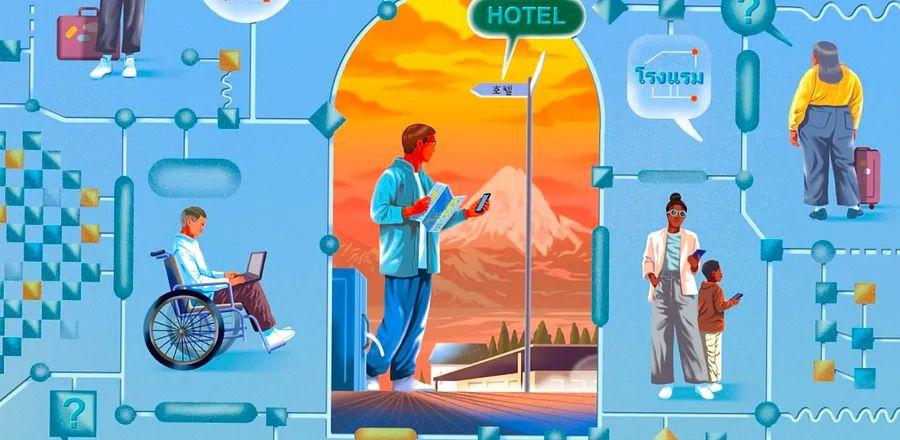The Case Against Relying on Translation Apps While Traveling

I've always had a passion for languages. I started learning French and German in middle school, and by the time I finished high school, I had two years of advanced French and Italian, three years of advanced German, and an appreciation for the art of translation through my studies in opera. In college, I explored French medieval poetry and Norse sagas.
My educational journey was unique, but those early language experiences shaped my understanding of how language can create connections. Nowadays, the landscape of learning has evolved. With powerful technology at our fingertips, translating is just a click away; apps like Duolingo can guide us through Greek, Hindi, and Haitian Creole. Sometimes, tools like Google Translate even vocalize our words, dissolving what once seemed an insurmountable language barrier. This advancement brings both benefits and drawbacks.
To make mistakes is human, but machines aren't infallible. When we enter our words into an app, we often lose the richness, rhythm, and emotion that make cross-linguistic communication so captivating. Frequently, what's overlooked is context: technology can't grasp linguistic subtleties or interpret situations because it can't perceive or evaluate the environment. While these applications can learn grammar, they miss the intuitive leaps of thought that humans possess. Lacking this intuitive intelligence, they struggle to adapt to new information in real-time.

Illustration by Glenn Harvey
As a traveler, I often find myself concerned that relying solely on technology makes our conversations feel transactional and less personal. While these apps increase the number of interactions we can have, they may compromise the quality of those connections. The people we encounter on our journeys aren't just faceless avatars; they possess unique personalities, vibrant lives, and distinct viewpoints. If we're fortunate, they might share these insights with us. My aspiration is for us, as global citizens seeking connection, to view these technologies as helpful tools rather than crutches that we depend on to navigate new languages.
The existence of translation apps doesn't negate the importance of learning a language before traveling. I make it a point to refresh my conversational abilities prior to a trip. Whether it's picking up a grammar workbook, watching pronunciation videos, or arranging a language exchange with a friend, I actively engage in preparation. Additionally, streaming TV shows or films from the destination helps prime my mind for the experience ahead.
Even if I feel confident in a language, I still like to carry a phrasebook when I'm abroad. At the very least, I compile a list of key words and phrases, such as greetings and essentials like 'excuse me,' 'thank you,' and 'restroom.' I've found that this low-tech method often warms the hearts of locals, who appreciate my effort and respond with kindness and goodwill, viewing it as a genuine interest in their culture.
I'm continually trying to navigate our new reality, and when I do use translation apps, I aim to do so with restraint. Before instinctively reaching for my phone, I pause to consider, do I truly need an app for what I want to express? More often than not, I resort to these tools when my language proficiency falls short of the specificity I require and I can't rely on a human translator. Recently, in Japan, I utilized DeepL's scan-to-translate function to explore treats available for mail order and turned to Google Translate to communicate with a pharmacist about obtaining pain relief for cramps.
In moments like these, with my phone at the ready, I also remain mindful of my body language. When it feels right, I make sure to establish eye contact. While an app can facilitate communication, it’s merely one part of the interaction.
Should all else fail, I'm ready to rely on gestures and smiles, using nonverbal communication. Is this approach awkward and potentially embarrassing? Maybe. Yet, this method has been a means of connection for millennia. Language provides us with a framework to interpret our experiences, no matter how basic or rough, and we don't always need an app to achieve that.

1

2

3

4

5
Evaluation :
5/5